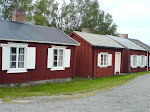I quote from Wikipedia:
“…he attended the Institute of Psychology in Moscow (1924–34), where he worked extensively on ideas about cognitive development, particularly the relationship between language and thinking. His writings emphasized the roles of historical, cultural, and social factors in cognition and argued that language was the most important symbolic tool provided by society. Vygotsky died of tuberculosis in 1934,
leaving a wealth of work that is still being explored.”
And further:
“Being a pioneering psychologist, Vygotsky was also a highly prolific author: the collection of his major works contains 6 volumes written over roughly 10 years. Vygotsky's interests in the fields of developmental psychology, child development, and education were extremely diverse. His innovative work in psychology includes several key concepts such as
• psychological tools, mediation, and internalization
• the zone of proximal development
and covers such diverse topics as the origin and the psychology of art, development of higher mental functions, philosophy of science and methodology of psychological research, the relation between learning and human development, concept formation, interrelation between language and thought development, play as a psychological phenomenon, the study of learning disabilities and abnormal human development (aka defectology), etc.”
And even more:
“Vygotsky investigated child development and how this was guided by the role of culture and interpersonal communication. Vygotsky observed how higher mental functions developed through social interactions with significant people in a child's life, particularly parents, but also other adults. Through these interactions, a child came to learn the habits of mind of her/his culture, including speech patterns, written language, and other symbolic knowledge through which the child derives meaning and affected a child's construction of her/his knowledge.”
Yes, his ideas are of particular interest in music-pedagogy??
Links:
In Swedish on Wikipedia.
And an essay about his ideas I think was interesting (in Swedish).
Review of a book about Vygostky in Swedish.
In English from Wikipedia.
A site in English with links called “Vygotsky resources”.
Addition: I don't know how to express this, but in my teacher's work I don't feel so technical... And I don't want to be either at all.





























Inga kommentarer:
Skicka en kommentar